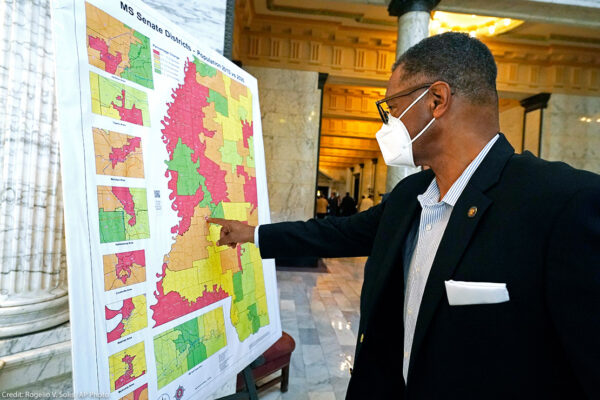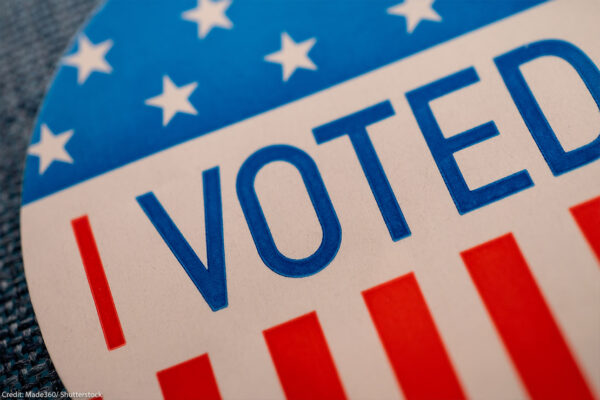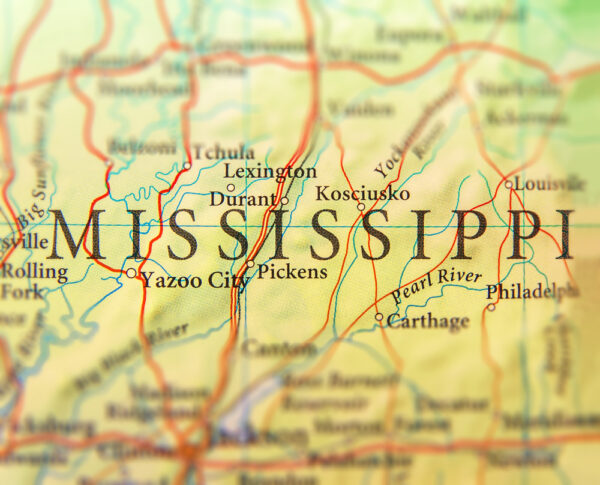Supreme Court Term 2025-2026
Weâre breaking down the cases we've asked the court to consider this term.
Latest Case Updates
Ongoing
Updated November 7, 2025
Ongoing
Updated November 5, 2025
Ongoing
Updated November 4, 2025
Ongoing
Updated October 21, 2025
Featured
U.S. Supreme Court
Nov 2025

Voting Rights
Racial Justice
Allen v. Milligan
Whether Alabamaâs congressional districts violate Section 2 of the Voting Rights Act because they discriminate against Black voters. We succeeded in winning a new map for 2024 elections which, for the first time, has two congressional district that provide Black voters a fair opportunity to elect candidates of their choosing despite multiple attempts by Alabama to stop us at the Supreme Court. Despite this win, Alabama is still defending its discriminatory map, and a trial was held in February 2025 to determine the map for the rest of the decade.
In May 2025, a federal court ruled that Alabama's 2023 congressional map both violates Section 2 of the Voting Rights Act and was enacted by the Alabama Legislature with racially discriminatory intent.
Washington, D.C.
Oct 2025

Voting Rights
League of Women Voters Education Fund v. Trump
On March 25, 2025, in a sweeping and unprecedented Executive Order, President Trump attempted to usurp the power to regulate federal elections from Congress and the States. Among other things, the Executive Order directs the Election Assistance Commissionâan agency that Congress specifically established to be bipartisan and independentâto require voters to show a passport or other citizenship documentation in order to register to vote in federal elections. If implemented, the Executive Order would threaten the ability of millions of eligible Americans to register and vote and upend the administration of federal elections.
On behalf of leading voter registration organizations and advocacy organizations, the šėÐÓĘÓÆĩ and co-counsel filed a lawsuit to block the Executive Order as an unconstitutional power grab.
U.S. Supreme Court
Oct 2025

Voting Rights
State Board of Election Commissioners v. Mississippi State Conference of the NAACP
Mississippi has a growing Black population, which is already the largest Black population percentage of any state in the country. Yet. Black Mississippians continue to be significantly under-represented in the state legislature, as Mississippiâs latest districting maps fail to reflect the reality of the stateâs changing demographics. During the 2022 redistricting process, the Mississippi legislature refused to create any new districts where Black voters have a chance to elect their preferred representative. The current district lines therefore dilute the voting power of Black Mississippians and continue to deprive them of political representation that is responsive to their needs and concerns, including severe disparities in education and healthcare.
U.S. Supreme Court
Oct 2025

Voting Rights
Louisiana v. Callais (Callais v. Landry)
Whether the congressional map Louisiana adopted to cure a Voting Rights Act violation in Robinson v. Ardoin is itself unlawful as a gerrymander.
Missouri
Sep 2025

Voting Rights
Wise v. Missouri
In unprecedented fashion, the State of Missouri has redrawn the district lines used for electing members of Congress for a second time this decade. These new district lines are gerrymandered and will harm political representation for all Missourians, particularly Black residents in Kansas City, who have been divided along racial lines.
Mississippi
Aug 2025

Voting Rights
White v. Mississippi State Board of Elections
District lines used to elect Mississippiâs Supreme Court have gone unchanged for more than 35 years. Weâre suing because this dilutes the voting strength of Black residents in state Supreme Court elections, in violation of the Voting Rights Act and the U.S. Constitution.
Louisiana
Aug 2025

Voting Rights
Nairne v. Landry
Nairne v. Landry poses a challenge under Section 2 of the Voting Rights Act of 1965 to Louisianaâs House and Senate legislative maps on behalf of plaintiff Black voters and Black voters across the state.
Ohio
Jul 2025

Reproductive Freedom
Planned Parenthood Southwest Ohio Region et al., v. Ohio Department of Health, et al.
The šėÐÓĘÓÆĩ, the šėÐÓĘÓÆĩ of Ohio, Planned Parenthood Federation of America, the law firm WilmerHale, and Fanon Rucker of the Cochran Law Firm, on behalf of Planned Parenthood Southwest Ohio Region, Planned Parenthood of Greater Ohio, Preterm-Cleveland, Womenâs Med Group Professional Corporation, Dr. Sharon Liner, and Julia Quinn, MSN, BSN, amended a complaint in an existing lawsuit against a ban on telehealth medication abortion services to bring new claims under the Ohio Reproductive Freedom Amendment, including additional challenges to other laws in Ohio that restrict access to medication abortion in the state.
U.S. Supreme Court
Apr 2024

Reproductive Freedom
Idaho and Moyle, et al. v. United States
Idaho and Moyle, et al. v. United States was appealed to the U.S. Supreme Court by Idaho politicians seeking to disregard a federal statute â the Emergency Medical Treatment and Labor Act (EMTALA) â and put doctors in jail for providing pregnant patients necessary emergency medical care. The Supreme Court heard oral arguments on this case on April 24, 2024. The Courtâs ultimate decision will impact access to this essential care across the country.
All Cases
1,624 Court Cases

U.S. Supreme Court
Dec 2021
Immigrants' Rights
Pham v. Guzman Chavez
Whether the Immigration and Nationality Act (âINAâ) requires a bond hearing for noncitizens who are detained by U.S. Immigration and Customs Enforcement (âICEâ) while they seek protection from persecution or torture.
Explore case
U.S. Supreme Court
Dec 2021

Immigrants' Rights
Pham v. Guzman Chavez
Whether the Immigration and Nationality Act (âINAâ) requires a bond hearing for noncitizens who are detained by U.S. Immigration and Customs Enforcement (âICEâ) while they seek protection from persecution or torture.

U.S. Supreme Court
Dec 2021
Criminal Law Reform
Edwards v. Vannoy
Whether the Supreme Courtâs decision in Ramos v. Louisiana, holding that the Sixth Amendment guarantees the right to a unanimous jury verdict, applies retroactively to cases on federal collateral review.
Explore case
U.S. Supreme Court
Dec 2021

Criminal Law Reform
Edwards v. Vannoy
Whether the Supreme Courtâs decision in Ramos v. Louisiana, holding that the Sixth Amendment guarantees the right to a unanimous jury verdict, applies retroactively to cases on federal collateral review.

U.S. Supreme Court
Dec 2021
Criminal Law Reform
Lombardo v. City of Saint Louis, 20â391
Whether a reasonable jury could find that police officers violate the Constitutionâs prohibition on excessive force when they kill a shackled and handcuffed arrestee inside of a jail cell by holding him face-down on the ground and pressing into his back until he suffocated, also known as compression asphyxiation.
Explore case
U.S. Supreme Court
Dec 2021

Criminal Law Reform
Lombardo v. City of Saint Louis, 20â391
Whether a reasonable jury could find that police officers violate the Constitutionâs prohibition on excessive force when they kill a shackled and handcuffed arrestee inside of a jail cell by holding him face-down on the ground and pressing into his back until he suffocated, also known as compression asphyxiation.

U.S. Supreme Court
Dec 2021
Disability Rights
California v. Texas
Whether Congressâs zeroing out of the tax assessment in the Affordable Care Act for people who fail to obtain health insurance renders the Affordable Care Act unconstitutional?
Explore case
U.S. Supreme Court
Dec 2021

Disability Rights
California v. Texas
Whether Congressâs zeroing out of the tax assessment in the Affordable Care Act for people who fail to obtain health insurance renders the Affordable Care Act unconstitutional?

U.S. Supreme Court
Dec 2021
Privacy & Technology
Robert Andrews v. State of New Jersey
Whether the Self-Incrimination Clause of the Fifth Amendment protects an individual from being compelled to recall and truthfully disclose a memorized smartphone passcode, where communicating the passcode may lead to the discovery of incriminating evidence to be used against him in a criminal prosecution?
Explore case
U.S. Supreme Court
Dec 2021

Privacy & Technology
Robert Andrews v. State of New Jersey
Whether the Self-Incrimination Clause of the Fifth Amendment protects an individual from being compelled to recall and truthfully disclose a memorized smartphone passcode, where communicating the passcode may lead to the discovery of incriminating evidence to be used against him in a criminal prosecution?
